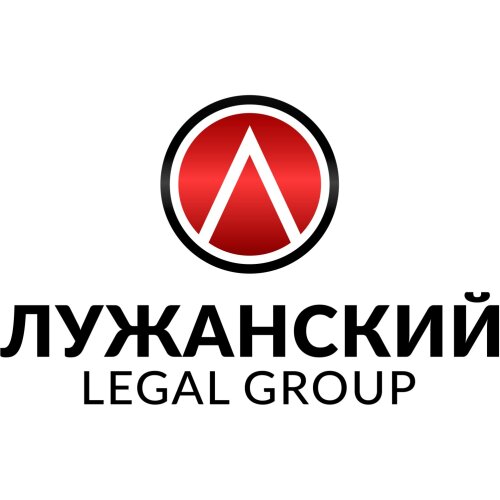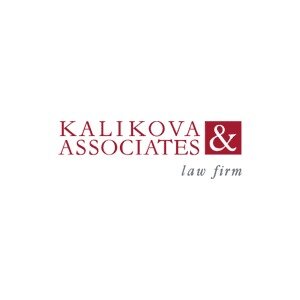Best Corporate Governance Lawyers in Kyrgyzstan
Share your needs with us, get contacted by law firms.
Free. Takes 2 min.
Or refine your search by selecting a city:
List of the best lawyers in Kyrgyzstan
About Corporate Governance Law in Kyrgyzstan
Corporate governance in Kyrgyzstan refers to the system of rules, practices, and processes by which companies are directed and controlled. The legal framework sets out how rights and responsibilities are distributed among different participants in the corporation, such as shareholders, management, boards, and other stakeholders. The aim is to balance the interests of these groups, ensure transparency, and foster trust in the corporate sector. In Kyrgyzstan, the rules for corporate governance are influenced both by local legislation and by international best practices to support economic development and integrity in business operations.
Why You May Need a Lawyer
There are many scenarios in which individuals or organizations may need legal assistance related to corporate governance in Kyrgyzstan. These include setting up a new business entity, managing relationships among shareholders, handling director or officer duties, ensuring legal compliance in day-to-day management, and dealing with mergers or acquisitions. If you face disputes between shareholders, are concerned about transparency, or seek to understand the legal responsibilities of a company director, consulting a lawyer can help prevent costly mistakes. A lawyer specializing in corporate governance also helps businesses adapt to evolving laws and corporate standards, manage risk, and protect stakeholders' interests.
Local Laws Overview
Corporate governance in Kyrgyzstan is regulated primarily by the Law on Joint Stock Companies, the Law on Limited Liability Companies, and the Civil Code of the Kyrgyz Republic. These laws outline the formation, operation, management, and dissolution of corporate entities. Key aspects include:
- Requirements for establishing and maintaining joint stock and limited liability companies
- Roles and responsibilities of shareholders, directors, and executive bodies
- Procedures for conducting general meetings and board meetings
- Rules for disclosing information and ensuring transparency
- Protection of minority shareholders' rights
- Legal mechanisms for handling conflicts of interest
- External and internal audit requirements
- Liabilities for breaches of fiduciary duty or abuse of office
- Regulations concerning mergers, acquisitions, and company restructuring
- Corporate reporting standards and record-keeping
These laws are complemented by guidelines from the State Service for Regulation and Supervision of the Financial Market and other government agencies that oversee compliance and promote best practices in corporate governance.
Frequently Asked Questions
What are the main corporate structures in Kyrgyzstan?
The most common corporate structures are Limited Liability Companies (LLCs) and Joint Stock Companies (JSCs). Each has specific legal and governance requirements.
Who is responsible for corporate governance in a Kyrgyz company?
The responsibility is shared among the General Meeting of Shareholders, the Board of Directors (if applicable), and executive management. Each group has defined legal duties and powers.
How are directors appointed or removed?
Directors are generally appointed or removed by the general meeting of shareholders, in accordance with the company’s charter and the governing law.
Is an annual general meeting mandatory?
Yes, for both LLCs and JSCs, annual general meetings are required to make key decisions such as approval of financial statements and election of board members.
How are conflicts of interest managed?
Directors and officers must disclose conflicts of interest and, where required, abstain from related decision-making. There are legal penalties for failing to disclose conflicts.
What information must companies disclose?
Public JSCs must disclose a wide range of information, including financial statements, material transactions, and changes in management. LLCs have more limited disclosure obligations.
What protections exist for minority shareholders?
Kyrgyz law provides specific rights to minority shareholders, such as access to information, the ability to challenge corporate resolutions, and protections against unfair dilution.
Are external audits required?
JSCs must conduct annual external audits, while LLCs may be exempt unless certain thresholds are met or the company’s charter requires it.
What are the penalties for violating corporate governance laws?
Penalties can include fines, compensation for damages, disqualification from holding office, and, in severe cases, criminal liability.
Can foreign nationals serve as directors or shareholders?
Yes, foreign nationals and legal entities can typically serve as directors or be shareholders, subject to some sector-specific restrictions and compliance with local registration requirements.
Additional Resources
Individuals and businesses seeking information or assistance on corporate governance in Kyrgyzstan may find the following resources helpful:
- State Service for Regulation and Supervision of the Financial Market of the Kyrgyz Republic - the main oversight authority for financial and corporate governance matters
- Ministry of Justice of the Kyrgyz Republic - provides access to business registration and legal documentation
- Chamber of Commerce and Industry of the Kyrgyz Republic - offers support to businesses on various regulatory issues
- Kyrgyz Stock Exchange - a resource for public companies and those interested in market regulations
- Local business associations and legal aid organizations specializing in corporate law
Next Steps
If you need legal assistance with corporate governance, start by defining your issue and gathering relevant company documents. Seek a qualified lawyer with experience in Kyrgyz corporate law, especially with joint stock and limited liability company matters. You can contact local law firms, consult the Chamber of Commerce, or approach organizations that support business owners. Prepare your questions in advance and clarify the terms of legal services before proceeding. Staying proactive and informed is the best strategy to protect your interests and ensure your company operates within the law.
Lawzana helps you find the best lawyers and law firms in Kyrgyzstan through a curated and pre-screened list of qualified legal professionals. Our platform offers rankings and detailed profiles of attorneys and law firms, allowing you to compare based on practice areas, including Corporate Governance, experience, and client feedback.
Each profile includes a description of the firm's areas of practice, client reviews, team members and partners, year of establishment, spoken languages, office locations, contact information, social media presence, and any published articles or resources. Most firms on our platform speak English and are experienced in both local and international legal matters.
Get a quote from top-rated law firms in Kyrgyzstan — quickly, securely, and without unnecessary hassle.
Disclaimer:
The information provided on this page is for general informational purposes only and does not constitute legal advice. While we strive to ensure the accuracy and relevance of the content, legal information may change over time, and interpretations of the law can vary. You should always consult with a qualified legal professional for advice specific to your situation.
We disclaim all liability for actions taken or not taken based on the content of this page. If you believe any information is incorrect or outdated, please contact us, and we will review and update it where appropriate.
Browse corporate governance law firms by city in Kyrgyzstan
Refine your search by selecting a city.











